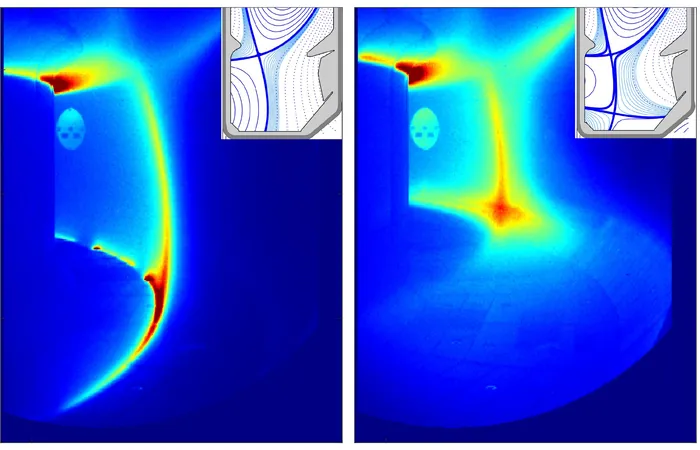
Unlocking the Brain's Potential: How Exercise May Deter Dementia
2025-01-24
Author: Li
Groundbreaking Study Overview
A groundbreaking study from Rutgers University-New Brunswick reveals exciting connections between exercise, brain function, and the risk of dementia. The research, published in the scientific journal *Aging Cell*, highlights how physical activity activates specialized cells in the brain that respond to insulin—a finding with far-reaching implications for cognitive health.
Insights from the Research Lead
Lead author Steven Malin, an associate professor in kinesiology and health, emphasizes the value of this research, stating, "Exercise may enhance cognition and memory by boosting the brain's insulin responsiveness." This revelation encourages further exploration of exercise as a potential preventative measure against conditions like dementia.
Research Focus and Methodology
Collaborating with the National Institutes of Health’s National Institute on Aging, the researchers focused specifically on neuronal extracellular vesicles, tiny particles released by brain cells that transport vital proteins, including those linked to insulin sensitivity. These vesicles were previously regarded as insignificant "cell dust," but they are now recognized for their crucial role in cellular communication.
Insulin Sensitivity and Cognitive Decline
Insulin sensitivity—which indicates how effectively the body utilizes insulin to regulate blood sugar—is often impaired in individuals with conditions such as prediabetes. This impairment can lead to cognitive decline, as brain cells rely on insulin to function correctly. The study involved 21 participants aged around 60, all prediabetic, who completed a regimen of moderate to high-intensity exercises over two weeks. Notably, their blood samples indicated a significant increase in the production of neuronal vesicles connected to insulin sensitivity following each exercise session.
Significant Findings
Malin describes this finding as the first demonstration of exercise's impact on insulin signaling through these vesicles, which serve as indicators of brain insulin sensitivity. "Exercise could bolster the brain's ability to respond to insulin, ultimately enhancing neuronal function," he notes.
The Role of Insulin in Cognitive Functions
Insulin does more than regulate blood sugar levels; it plays a vital role in memory, learning, and cognitive processing. The link between insulin deficiency in the brain and the potential onset of dementia is significant, particularly for people with prediabetes—who are already at higher risk.
Consequences of Insulin Resistance
"Without sufficient insulin, brain cells can malfunction, disrupting their communication—similar to a miscommunication game of 'telephone'," Malin explains, highlighting the dangers of insulin resistance in the brain.
Previous Research and New Insights
While the positive effects of exercise on cognitive abilities have been suggested in prior studies, the precise mechanisms remained elusive until now. Continuous high blood sugar levels are known to diminish the brain's ability to learn and remember.
The Importance of Insulin for Brain Health
Insulin, produced by the pancreas, has a direct impact on promoting blood flow to the brain, further fostering optimal cognitive function. Hence, Malin concludes that therapies targeting brain insulin action could potentially stave off diseases like dementia.
Future Research Directions
Looking ahead, Malin and his team are embarking on a new study examining how a single exercise session can amplify the cognitive health benefits of intranasal insulin among obese aging adults. Their ultimate goal is to establish whether long-term exercise training can enhance brain insulin sensitivity and, in turn, cognitive function in older populations.
Conclusion
This compelling research not only underscores the importance of physical activity for brain health but also sparks hope for new avenues in the prevention of dementia. Could regular exercise truly be the key to unlocking a sharper mind and a healthier future? Don't miss out—it's time to get moving!



 Brasil (PT)
Brasil (PT)
 Canada (EN)
Canada (EN)
 Chile (ES)
Chile (ES)
 Česko (CS)
Česko (CS)
 대한민국 (KO)
대한민국 (KO)
 España (ES)
España (ES)
 France (FR)
France (FR)
 Hong Kong (EN)
Hong Kong (EN)
 Italia (IT)
Italia (IT)
 日本 (JA)
日本 (JA)
 Magyarország (HU)
Magyarország (HU)
 Norge (NO)
Norge (NO)
 Polska (PL)
Polska (PL)
 Schweiz (DE)
Schweiz (DE)
 Singapore (EN)
Singapore (EN)
 Sverige (SV)
Sverige (SV)
 Suomi (FI)
Suomi (FI)
 Türkiye (TR)
Türkiye (TR)
 الإمارات العربية المتحدة (AR)
الإمارات العربية المتحدة (AR)